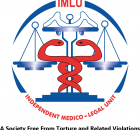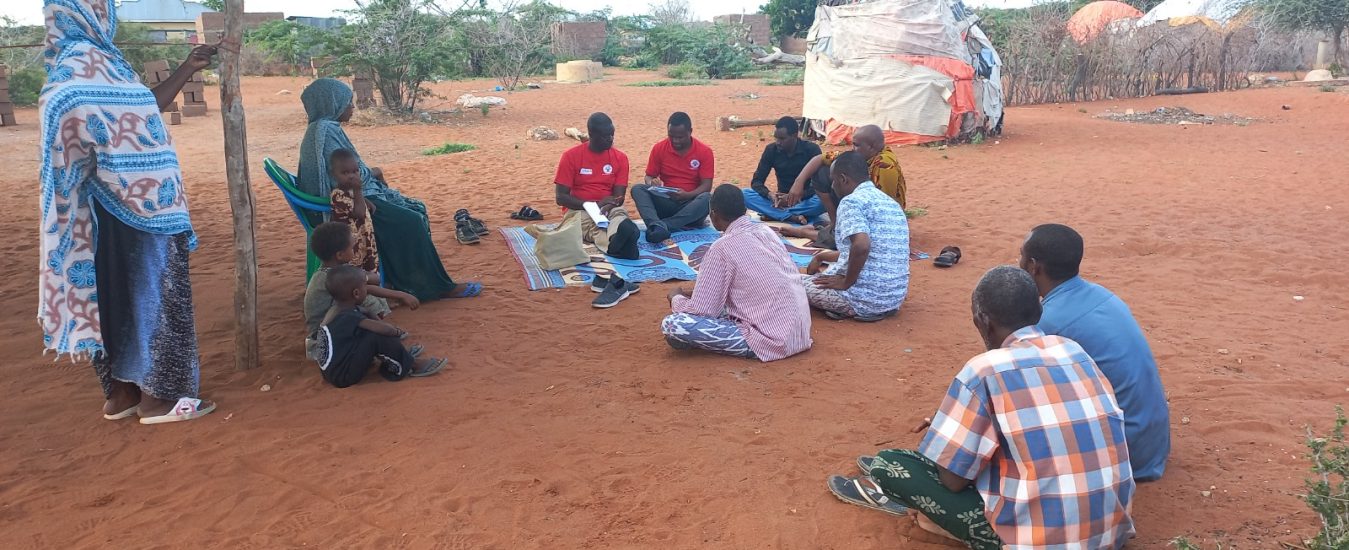By William Omondi, SM Amimo and Barbra Katasi
Halima is resolutely scrubbing her utensils as she occasionally pulls up the sleeves of her flowing dera from becoming wet. It is 11:00 a.m. and the sun is sweltering in the North Eastern town of Wajir, in Kenya. The town is babbling with life. Business is booming, Highrise buildings are springing up as vehicles roll on the tarmac that wiggles its way around the town. Businessmen and women can be seen haggling and laughing and selling their wares. As team members of the Independent Medico-Legal Unit (IMLU), we have just arrived in the town to document recent cases of shootings and killings by the Kenya Wild Life Services (KWS) and the National Police Service (NPS) officers.
It can be lost on a visitor that beneath this veneer lies the traumatizing experiences that residents of Wajir have undergone at the hands of law enforcement officers. The traumas date back to 1984 when more than one thousand men from the Degodia Clan were subjected to torture and extrajudicial killing by the Kenya Army. They were forced to strip naked and squat in the scorching sun without food or water. Victims of the pogrom succumbed to bullet wounds, starvation, being burnt alive and being stampeded as they tried to escape from Wagalla Airstrip. Women were equally raped in what was later named the Wagalla Massacre.
Notwithstanding the above brutality, law enforcement officers continue to perpetrate Torture Cruel Inhuman and Degrading Treatment in the local population. This is why Halima, members of her family and the local community are still mourning. She lost her son-law to bullets that were fired by rogue KWS officers. The incident occurred on May 3, 2023, when Abdinoor Hassan Osman (26 years) and Abdishukri Mohamed Adan (20 years) were fatally shot by officers of the Kenya Wildlife Services on suspicion of poaching in Wachir Village that is located on the outskirts of Wajir town. Abdishukri Mohamed Adan succumbed to a bullet that was fired at their vehicle by the officers. The officers handcuffed and executed Abdinoor Hassan Osman in cold blood after forcefully removing him from his vehicle.
Residents of the town were angered by the incident and decided to demonstrate against the excessive use of force by the KWS Officers. In response to the demonstrations, officers of the National Police Service shot and killed Abdisalan Hussein Issack, a 13-year-old primary schoolboy and injured a 17-year-old male secondary school student who will live with a bullet lodged in his body for the rest of his life. The impact of the violence that was perpetrated by officers who are supposed to protect the citizenry left behind deaths, injuries and rage in the town of Wajir. Families of the deceased persons are still mourning as they grapple with supporting their widows and orphans.
Widows of the young men who were shot by officers of the KWS have gone back to their family homesteads and are under the care of their mothers. Two of them are expectant and their children therefore will not see their fathers. Their mothers are struggling with the new responsibility of taking care of the returned daughters and their children. The brother of the 13-year-old boy who was killed by the police could not withhold his tears when talking about his last-born brother whose future was cut short by a rogue police officer. The 17-year-old male who will live with a bullet lodged in his body for the rest of his life is still struggling to adjust to the new reality. His uncle is angry about the general costs that he had incurred because of an irresponsible police officer.
During our visit to the families of the victims in Wajir IMLU also paid a courtesy call to Kenya national commission on human rights (KNCHR) regional offices in Wajir County and Pastoralists Rights and Advocacy Network (Paranet) office where we held collaborative meetings. Notably, the Kenya National Commission on Human Rights works with very minimal resources in the entire North Eastern Region. Their pursuit of justice for survivors and victims of torture and state brutality is therefore hindered by a lack of human resources. The commission only employs 7 staff members working in the expansive region that geographically covers almost three-quarters of Kenya.
At IMLU, pursuing justice is our commitment to this land. We will not relent in pursuing justice for the survivors and victims of the excessive use of force by persons who bear the constitutional responsibility to protect Kenyans. We say no to police brutality. We will pursue justice for the affected families to its logical conclusion.

